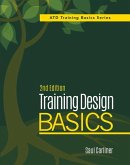John Mizzoni (USA Neumann University)
Ethics: The Basics, 2nd Edition
24,99 €
inkl. MwSt.
Versandfertig in 2-4 Wochen

12 °P sammeln
John Mizzoni (USA Neumann University)
Ethics: The Basics, 2nd Edition
- Broschiertes Buch
- Merkliste
- Auf die Merkliste
- Bewerten Bewerten
- Teilen
- Produkt teilen
- Produkterinnerung
- Produkterinnerung
Updated and revised, Ethics: The Basics, Second Edition, introduces students to fundamental ethical concepts, principles, theories, and traditions while providing them with the conceptual tools necessary to think critically about ethical issues.
Andere Kunden interessierten sich auch für
![Food Ethics: The Basics Food Ethics: The Basics]() Ronald L. SandlerFood Ethics: The Basics143,99 €
Ronald L. SandlerFood Ethics: The Basics143,99 €![Food Ethics: The Basics Food Ethics: The Basics]() Ronald L. Sandler (Northeastern University, Boston, Massachusetts,Food Ethics: The Basics26,99 €
Ronald L. Sandler (Northeastern University, Boston, Massachusetts,Food Ethics: The Basics26,99 €![Media Ethics: Key Principles for Responsible Practice Media Ethics: Key Principles for Responsible Practice]() Patrick PlaisanceMedia Ethics: Key Principles for Responsible Practice122,99 €
Patrick PlaisanceMedia Ethics: Key Principles for Responsible Practice122,99 €![Ethics: The Key Thinkers Ethics: The Key Thinkers]() Ethics: The Key Thinkers36,99 €
Ethics: The Key Thinkers36,99 €![Training Design Basics, 2nd Edition Training Design Basics, 2nd Edition]() Saul CarlinerTraining Design Basics, 2nd Edition34,99 €
Saul CarlinerTraining Design Basics, 2nd Edition34,99 €![Animal Welfare Science, Husbandry and Ethics: The Evolving Story of Our Relationship with Farm Animals Animal Welfare Science, Husbandry and Ethics: The Evolving Story of Our Relationship with Farm Animals]() Mark FisherAnimal Welfare Science, Husbandry and Ethics: The Evolving Story of Our Relationship with Farm Animals31,99 €
Mark FisherAnimal Welfare Science, Husbandry and Ethics: The Evolving Story of Our Relationship with Farm Animals31,99 €![Nursing Ethics: Across The Curriculum And Into Practice Nursing Ethics: Across The Curriculum And Into Practice]() Janie B. ButtsNursing Ethics: Across The Curriculum And Into Practice78,99 €
Janie B. ButtsNursing Ethics: Across The Curriculum And Into Practice78,99 €-
-
-
Updated and revised, Ethics: The Basics, Second Edition, introduces students to fundamental ethical concepts, principles, theories, and traditions while providing them with the conceptual tools necessary to think critically about ethical issues.
Hinweis: Dieser Artikel kann nur an eine deutsche Lieferadresse ausgeliefert werden.
Hinweis: Dieser Artikel kann nur an eine deutsche Lieferadresse ausgeliefert werden.
Produktdetails
- Produktdetails
- Verlag: John Wiley and Sons Ltd
- 2 ed
- Seitenzahl: 224
- Erscheinungstermin: 5. Mai 2017
- Englisch
- Abmessung: 229mm x 152mm x 12mm
- Gewicht: 338g
- ISBN-13: 9781119150688
- ISBN-10: 111915068X
- Artikelnr.: 46481730
- Herstellerkennzeichnung
- Libri GmbH
- Europaallee 1
- 36244 Bad Hersfeld
- gpsr@libri.de
- Verlag: John Wiley and Sons Ltd
- 2 ed
- Seitenzahl: 224
- Erscheinungstermin: 5. Mai 2017
- Englisch
- Abmessung: 229mm x 152mm x 12mm
- Gewicht: 338g
- ISBN-13: 9781119150688
- ISBN-10: 111915068X
- Artikelnr.: 46481730
- Herstellerkennzeichnung
- Libri GmbH
- Europaallee 1
- 36244 Bad Hersfeld
- gpsr@libri.de
John Mizzoni holds a PhD from Temple University, and is an Associate Professor of Philosophy at Neumann college in Pennsylvania where he teaches a wide range of philosophy courses. A specialist in moral and environmental philosophy, he has over twenty publications in journals such The Journal of Philosophical Research, The International Journal of Applied Philosophy, Environmental Ethics, Journal of Interdisciplinary Studies, The Philosopher's Magazine, Bridges: An Interdisciplinary Journal of Theology, Philosophy, History, and Science, The International Journal of the Humanities, Teaching Ethics and Environmental Philosophy. He is also a semi-professional musician.
Ethics Self?-Orientation ix
Introduction 1
Summary of Philosophical Problems about Ethics 6
1 Relative Ethics or Universal Ethics? 8
1.1 Relative Ethics 9
1.2 Universal Ethics 10
1.3 Cultural Relativism or Ethical Relativism? 11
1.4 Cultural Relativism and Universal Ethics 12
1.5 Ethics and Human Nature 13
1.6 Ethics and Human Rationality 14
1.7 Relative Ethics or Universal Ethics? 15
1.8 Conclusion 17
Concepts, Theories, and Traditions Introduced in Chapter 1 18
For Further Reading 19
Online Resources 19
Review Questions 20
Discussion Questions 20
2 Virtue Ethics 22
2.1 What Are Virtues? 24
2.2 Aristotle, Happiness, and the Virtues 27
2.3 A Developmental Model 28
2.4 Universalism and Relativism Again 31
2.5 Virtue Ethics: A Guide to Good Behavior 33
2.6 Pros and Cons of Virtue Ethics 35
2.7 Conclusion 37
Concepts, Principles, Theories, and Traditions Introduced in Chapter 2 38
For Further Reading 39
Online Resources 40
Review Questions 40
Discussion Questions 40
3 Natural Law Ethics 42
3.1 What Is Natural Law and Where Does It Come From? 43
3.2 The Natural Law and Universal Ethics 46
3.3 Natural Law Ethics and Human Nature 46
3.4 Natural Law Ethics and Virtue Ethics 51
3.5 When Following the Natural Law Is Unclear: Use the Pauline Principle 52
3.6 When Following the Natural Law Is Unclear: Use the Principle of Double
Effect 53
3.7 Conclusion 56
Concepts, Principles, Theories, and Traditions Introduced in Chapter 3 58
For Further Reading 59
Online Resources 60
Review Questions 60
Discussion Questions 60
4 Social Contract Ethics 62
4.1 Continuities and Discontinuities with Natural Law Ethics 63
4.2 The Principle of Self?]Interest (Ethical Egoism) 65
4.3 The State of Nature 66
4.4 A Contract Involves Cooperation 68
4.5 A Contract Involves Rationality 70
4.6 Common?]sense Morality (Properly Understood) 72
4.7 Social Contract Ethics Applied 74
4.8 Conclusion 77
Concepts, Principles, Theories, and Traditions Introduced in Chapter 4 79
For Further Reading 80
Online Resources 80
Review Questions 81
Discussion Questions 81
5 Utilitarian Ethics 82
5.1 Ethics Is Based on Feelings 83
5.2 Is Ought: Shorthand for Hume's Theory of Moral Sentiments 86
5.3 Feelings, Utility, and Consequences 88
5.4 Utility and Happiness 91
5.5 Utilitarianism: Relativist or Universalist? 92
5.6 Utility and Equality 93
5.7 Utilitarian Applications 95
5.8 Conclusion 98
Concepts, Principles, Theories, and Traditions Introduced in Chapter 5 99
For Further Reading 100
Online Resources 101
Review Questions 101
Discussion Questions 102
6 Deontological Ethics 103
6.1 Duty-centered Ethics 105
6.2 Ethics of Freedom and Rationality 106
6.3 The Main Deontological Principle: The Categorical Imperative 107
6.4 One Form of the Categorical Imperative: The Principle of Autonomy 110
6.5 Another Form of the Categorical Imperative: The Principle
of Universality 112
6.6 Duties Correlate with Rights (Usually) 114
6.7 Deontology: Relativist or Universalist? 117
6.8 Deontological Applications 117
6.9 Conclusion 121
Concepts, Principles, Theories, and Traditions Introduced in Chapter 6 123
For Further Reading 124
Online Resources 125
Review Questions 125
Discussion Questions 125
7 Care Ethics 127
7.1 Ethics Is Based on Feelings 129
7.2 Humans Are Relational Beings 130
7.3 Ethics of Principles 133
7.4 Virtue Ethics and Partiality 135
7.5 Feminine Ethics 136
7.6 Care Ethics: Relativist or Universalist? 138
7.7 Care Ethics Applications 140
7.8 Conclusion 142
Concepts, Principles, Theories, and Traditions Introduced in Chapter 7 143
For Further Reading 144
Online Resources 145
Review Questions 145
Discussion Questions 146
8 Conclusion: Using the Tools of Ethics 148
8.1 Living Ethical Concepts, Principles, Theories, and Traditions 150
8.2 Ethical Issues, Both Private and Public 151
8.3 Useful Ethical Concepts, Principles, Theories, and Traditions 151
8.4 Ethical Tools Are Not Mechanical Tools 154
8.5 How to Use Ethical Tools 155
8.6 Pitfalls and Practice 163
8.7 Wrap Up 165
For Further Reading 166
Review Questions 167
Discussion Questions 167
Appendix 1: Ethical Concepts, Principles, Theories, and Traditions 169
Appendix 2: Ethical Principles 177
Appendix 3: Notes on Sources 179
Appendix 4: Metaethics 184
Appendix 5: References 196
Index 203
Introduction 1
Summary of Philosophical Problems about Ethics 6
1 Relative Ethics or Universal Ethics? 8
1.1 Relative Ethics 9
1.2 Universal Ethics 10
1.3 Cultural Relativism or Ethical Relativism? 11
1.4 Cultural Relativism and Universal Ethics 12
1.5 Ethics and Human Nature 13
1.6 Ethics and Human Rationality 14
1.7 Relative Ethics or Universal Ethics? 15
1.8 Conclusion 17
Concepts, Theories, and Traditions Introduced in Chapter 1 18
For Further Reading 19
Online Resources 19
Review Questions 20
Discussion Questions 20
2 Virtue Ethics 22
2.1 What Are Virtues? 24
2.2 Aristotle, Happiness, and the Virtues 27
2.3 A Developmental Model 28
2.4 Universalism and Relativism Again 31
2.5 Virtue Ethics: A Guide to Good Behavior 33
2.6 Pros and Cons of Virtue Ethics 35
2.7 Conclusion 37
Concepts, Principles, Theories, and Traditions Introduced in Chapter 2 38
For Further Reading 39
Online Resources 40
Review Questions 40
Discussion Questions 40
3 Natural Law Ethics 42
3.1 What Is Natural Law and Where Does It Come From? 43
3.2 The Natural Law and Universal Ethics 46
3.3 Natural Law Ethics and Human Nature 46
3.4 Natural Law Ethics and Virtue Ethics 51
3.5 When Following the Natural Law Is Unclear: Use the Pauline Principle 52
3.6 When Following the Natural Law Is Unclear: Use the Principle of Double
Effect 53
3.7 Conclusion 56
Concepts, Principles, Theories, and Traditions Introduced in Chapter 3 58
For Further Reading 59
Online Resources 60
Review Questions 60
Discussion Questions 60
4 Social Contract Ethics 62
4.1 Continuities and Discontinuities with Natural Law Ethics 63
4.2 The Principle of Self?]Interest (Ethical Egoism) 65
4.3 The State of Nature 66
4.4 A Contract Involves Cooperation 68
4.5 A Contract Involves Rationality 70
4.6 Common?]sense Morality (Properly Understood) 72
4.7 Social Contract Ethics Applied 74
4.8 Conclusion 77
Concepts, Principles, Theories, and Traditions Introduced in Chapter 4 79
For Further Reading 80
Online Resources 80
Review Questions 81
Discussion Questions 81
5 Utilitarian Ethics 82
5.1 Ethics Is Based on Feelings 83
5.2 Is Ought: Shorthand for Hume's Theory of Moral Sentiments 86
5.3 Feelings, Utility, and Consequences 88
5.4 Utility and Happiness 91
5.5 Utilitarianism: Relativist or Universalist? 92
5.6 Utility and Equality 93
5.7 Utilitarian Applications 95
5.8 Conclusion 98
Concepts, Principles, Theories, and Traditions Introduced in Chapter 5 99
For Further Reading 100
Online Resources 101
Review Questions 101
Discussion Questions 102
6 Deontological Ethics 103
6.1 Duty-centered Ethics 105
6.2 Ethics of Freedom and Rationality 106
6.3 The Main Deontological Principle: The Categorical Imperative 107
6.4 One Form of the Categorical Imperative: The Principle of Autonomy 110
6.5 Another Form of the Categorical Imperative: The Principle
of Universality 112
6.6 Duties Correlate with Rights (Usually) 114
6.7 Deontology: Relativist or Universalist? 117
6.8 Deontological Applications 117
6.9 Conclusion 121
Concepts, Principles, Theories, and Traditions Introduced in Chapter 6 123
For Further Reading 124
Online Resources 125
Review Questions 125
Discussion Questions 125
7 Care Ethics 127
7.1 Ethics Is Based on Feelings 129
7.2 Humans Are Relational Beings 130
7.3 Ethics of Principles 133
7.4 Virtue Ethics and Partiality 135
7.5 Feminine Ethics 136
7.6 Care Ethics: Relativist or Universalist? 138
7.7 Care Ethics Applications 140
7.8 Conclusion 142
Concepts, Principles, Theories, and Traditions Introduced in Chapter 7 143
For Further Reading 144
Online Resources 145
Review Questions 145
Discussion Questions 146
8 Conclusion: Using the Tools of Ethics 148
8.1 Living Ethical Concepts, Principles, Theories, and Traditions 150
8.2 Ethical Issues, Both Private and Public 151
8.3 Useful Ethical Concepts, Principles, Theories, and Traditions 151
8.4 Ethical Tools Are Not Mechanical Tools 154
8.5 How to Use Ethical Tools 155
8.6 Pitfalls and Practice 163
8.7 Wrap Up 165
For Further Reading 166
Review Questions 167
Discussion Questions 167
Appendix 1: Ethical Concepts, Principles, Theories, and Traditions 169
Appendix 2: Ethical Principles 177
Appendix 3: Notes on Sources 179
Appendix 4: Metaethics 184
Appendix 5: References 196
Index 203
Ethics Self?-Orientation ix
Introduction 1
Summary of Philosophical Problems about Ethics 6
1 Relative Ethics or Universal Ethics? 8
1.1 Relative Ethics 9
1.2 Universal Ethics 10
1.3 Cultural Relativism or Ethical Relativism? 11
1.4 Cultural Relativism and Universal Ethics 12
1.5 Ethics and Human Nature 13
1.6 Ethics and Human Rationality 14
1.7 Relative Ethics or Universal Ethics? 15
1.8 Conclusion 17
Concepts, Theories, and Traditions Introduced in Chapter 1 18
For Further Reading 19
Online Resources 19
Review Questions 20
Discussion Questions 20
2 Virtue Ethics 22
2.1 What Are Virtues? 24
2.2 Aristotle, Happiness, and the Virtues 27
2.3 A Developmental Model 28
2.4 Universalism and Relativism Again 31
2.5 Virtue Ethics: A Guide to Good Behavior 33
2.6 Pros and Cons of Virtue Ethics 35
2.7 Conclusion 37
Concepts, Principles, Theories, and Traditions Introduced in Chapter 2 38
For Further Reading 39
Online Resources 40
Review Questions 40
Discussion Questions 40
3 Natural Law Ethics 42
3.1 What Is Natural Law and Where Does It Come From? 43
3.2 The Natural Law and Universal Ethics 46
3.3 Natural Law Ethics and Human Nature 46
3.4 Natural Law Ethics and Virtue Ethics 51
3.5 When Following the Natural Law Is Unclear: Use the Pauline Principle 52
3.6 When Following the Natural Law Is Unclear: Use the Principle of Double
Effect 53
3.7 Conclusion 56
Concepts, Principles, Theories, and Traditions Introduced in Chapter 3 58
For Further Reading 59
Online Resources 60
Review Questions 60
Discussion Questions 60
4 Social Contract Ethics 62
4.1 Continuities and Discontinuities with Natural Law Ethics 63
4.2 The Principle of Self?]Interest (Ethical Egoism) 65
4.3 The State of Nature 66
4.4 A Contract Involves Cooperation 68
4.5 A Contract Involves Rationality 70
4.6 Common?]sense Morality (Properly Understood) 72
4.7 Social Contract Ethics Applied 74
4.8 Conclusion 77
Concepts, Principles, Theories, and Traditions Introduced in Chapter 4 79
For Further Reading 80
Online Resources 80
Review Questions 81
Discussion Questions 81
5 Utilitarian Ethics 82
5.1 Ethics Is Based on Feelings 83
5.2 Is Ought: Shorthand for Hume's Theory of Moral Sentiments 86
5.3 Feelings, Utility, and Consequences 88
5.4 Utility and Happiness 91
5.5 Utilitarianism: Relativist or Universalist? 92
5.6 Utility and Equality 93
5.7 Utilitarian Applications 95
5.8 Conclusion 98
Concepts, Principles, Theories, and Traditions Introduced in Chapter 5 99
For Further Reading 100
Online Resources 101
Review Questions 101
Discussion Questions 102
6 Deontological Ethics 103
6.1 Duty-centered Ethics 105
6.2 Ethics of Freedom and Rationality 106
6.3 The Main Deontological Principle: The Categorical Imperative 107
6.4 One Form of the Categorical Imperative: The Principle of Autonomy 110
6.5 Another Form of the Categorical Imperative: The Principle
of Universality 112
6.6 Duties Correlate with Rights (Usually) 114
6.7 Deontology: Relativist or Universalist? 117
6.8 Deontological Applications 117
6.9 Conclusion 121
Concepts, Principles, Theories, and Traditions Introduced in Chapter 6 123
For Further Reading 124
Online Resources 125
Review Questions 125
Discussion Questions 125
7 Care Ethics 127
7.1 Ethics Is Based on Feelings 129
7.2 Humans Are Relational Beings 130
7.3 Ethics of Principles 133
7.4 Virtue Ethics and Partiality 135
7.5 Feminine Ethics 136
7.6 Care Ethics: Relativist or Universalist? 138
7.7 Care Ethics Applications 140
7.8 Conclusion 142
Concepts, Principles, Theories, and Traditions Introduced in Chapter 7 143
For Further Reading 144
Online Resources 145
Review Questions 145
Discussion Questions 146
8 Conclusion: Using the Tools of Ethics 148
8.1 Living Ethical Concepts, Principles, Theories, and Traditions 150
8.2 Ethical Issues, Both Private and Public 151
8.3 Useful Ethical Concepts, Principles, Theories, and Traditions 151
8.4 Ethical Tools Are Not Mechanical Tools 154
8.5 How to Use Ethical Tools 155
8.6 Pitfalls and Practice 163
8.7 Wrap Up 165
For Further Reading 166
Review Questions 167
Discussion Questions 167
Appendix 1: Ethical Concepts, Principles, Theories, and Traditions 169
Appendix 2: Ethical Principles 177
Appendix 3: Notes on Sources 179
Appendix 4: Metaethics 184
Appendix 5: References 196
Index 203
Introduction 1
Summary of Philosophical Problems about Ethics 6
1 Relative Ethics or Universal Ethics? 8
1.1 Relative Ethics 9
1.2 Universal Ethics 10
1.3 Cultural Relativism or Ethical Relativism? 11
1.4 Cultural Relativism and Universal Ethics 12
1.5 Ethics and Human Nature 13
1.6 Ethics and Human Rationality 14
1.7 Relative Ethics or Universal Ethics? 15
1.8 Conclusion 17
Concepts, Theories, and Traditions Introduced in Chapter 1 18
For Further Reading 19
Online Resources 19
Review Questions 20
Discussion Questions 20
2 Virtue Ethics 22
2.1 What Are Virtues? 24
2.2 Aristotle, Happiness, and the Virtues 27
2.3 A Developmental Model 28
2.4 Universalism and Relativism Again 31
2.5 Virtue Ethics: A Guide to Good Behavior 33
2.6 Pros and Cons of Virtue Ethics 35
2.7 Conclusion 37
Concepts, Principles, Theories, and Traditions Introduced in Chapter 2 38
For Further Reading 39
Online Resources 40
Review Questions 40
Discussion Questions 40
3 Natural Law Ethics 42
3.1 What Is Natural Law and Where Does It Come From? 43
3.2 The Natural Law and Universal Ethics 46
3.3 Natural Law Ethics and Human Nature 46
3.4 Natural Law Ethics and Virtue Ethics 51
3.5 When Following the Natural Law Is Unclear: Use the Pauline Principle 52
3.6 When Following the Natural Law Is Unclear: Use the Principle of Double
Effect 53
3.7 Conclusion 56
Concepts, Principles, Theories, and Traditions Introduced in Chapter 3 58
For Further Reading 59
Online Resources 60
Review Questions 60
Discussion Questions 60
4 Social Contract Ethics 62
4.1 Continuities and Discontinuities with Natural Law Ethics 63
4.2 The Principle of Self?]Interest (Ethical Egoism) 65
4.3 The State of Nature 66
4.4 A Contract Involves Cooperation 68
4.5 A Contract Involves Rationality 70
4.6 Common?]sense Morality (Properly Understood) 72
4.7 Social Contract Ethics Applied 74
4.8 Conclusion 77
Concepts, Principles, Theories, and Traditions Introduced in Chapter 4 79
For Further Reading 80
Online Resources 80
Review Questions 81
Discussion Questions 81
5 Utilitarian Ethics 82
5.1 Ethics Is Based on Feelings 83
5.2 Is Ought: Shorthand for Hume's Theory of Moral Sentiments 86
5.3 Feelings, Utility, and Consequences 88
5.4 Utility and Happiness 91
5.5 Utilitarianism: Relativist or Universalist? 92
5.6 Utility and Equality 93
5.7 Utilitarian Applications 95
5.8 Conclusion 98
Concepts, Principles, Theories, and Traditions Introduced in Chapter 5 99
For Further Reading 100
Online Resources 101
Review Questions 101
Discussion Questions 102
6 Deontological Ethics 103
6.1 Duty-centered Ethics 105
6.2 Ethics of Freedom and Rationality 106
6.3 The Main Deontological Principle: The Categorical Imperative 107
6.4 One Form of the Categorical Imperative: The Principle of Autonomy 110
6.5 Another Form of the Categorical Imperative: The Principle
of Universality 112
6.6 Duties Correlate with Rights (Usually) 114
6.7 Deontology: Relativist or Universalist? 117
6.8 Deontological Applications 117
6.9 Conclusion 121
Concepts, Principles, Theories, and Traditions Introduced in Chapter 6 123
For Further Reading 124
Online Resources 125
Review Questions 125
Discussion Questions 125
7 Care Ethics 127
7.1 Ethics Is Based on Feelings 129
7.2 Humans Are Relational Beings 130
7.3 Ethics of Principles 133
7.4 Virtue Ethics and Partiality 135
7.5 Feminine Ethics 136
7.6 Care Ethics: Relativist or Universalist? 138
7.7 Care Ethics Applications 140
7.8 Conclusion 142
Concepts, Principles, Theories, and Traditions Introduced in Chapter 7 143
For Further Reading 144
Online Resources 145
Review Questions 145
Discussion Questions 146
8 Conclusion: Using the Tools of Ethics 148
8.1 Living Ethical Concepts, Principles, Theories, and Traditions 150
8.2 Ethical Issues, Both Private and Public 151
8.3 Useful Ethical Concepts, Principles, Theories, and Traditions 151
8.4 Ethical Tools Are Not Mechanical Tools 154
8.5 How to Use Ethical Tools 155
8.6 Pitfalls and Practice 163
8.7 Wrap Up 165
For Further Reading 166
Review Questions 167
Discussion Questions 167
Appendix 1: Ethical Concepts, Principles, Theories, and Traditions 169
Appendix 2: Ethical Principles 177
Appendix 3: Notes on Sources 179
Appendix 4: Metaethics 184
Appendix 5: References 196
Index 203







